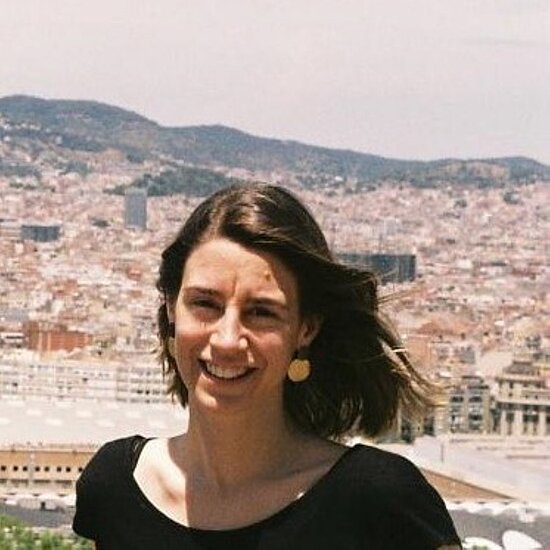Assoc. Prof. Dr. Mar Joanpere Foraster

CG2: Higher education supporting the development of adult learning and education: Examples, experiences, expectations
Co-Moderator: Prof. Balázs Németh & Prof.(H) Dr. Dr. h. c. mult. Heribert Hinzen
This issue relates to three main areas for action to widen participation and performance in university lifelong learning programmes:
- Policy environments to promote lifelong learning in higher education
- Institutional governance and implementation
- Widening access through diversification and flexibility
The third above mentioned area takes us to some key issues of adult learning, like reaching out to non-traditional learners and vulnerable groups, diversified learning provision, flexible learning pathways, technology-enhanced learning, social responsibility and local partnerships. These areas can allow universities to either initiate actions in accordance with those emerging areas of intervention for better participation in quality learning and to enhance learning opportunities for a potentially wider group of non-traditional learners.
The roles of higher education in lifelong learning having been emphasized by UNESCO UIL reflections are the results of a wider scope on interactions amongst various sectors of education and beyond to understand potentials of skills development, as a dominating layer of educational policy focuses so as to help engagement, participation be settled through equitable measures and quality concerns, by recognising on the one hand, the impact of national qualifications frameworks for educational and VET programmes and for skills policies, but also to rely more, on the other hand, claiming developments in non-formal and informal learning for adults.
- Tellado, I., Girbés-Peco, S., Joanpere, M., & Burgués-Freitas, A. (2024). Digital literacy of older women with smartphones: a dialogic approach to overcoming barriers. Research on Ageing and Social Policy, 12(1), 44–61. https://doi.org/10.17583/rasp.13864 Q4 (gerontology) Open access.
- Olabarria, A.; Burgués-Freitas, A.; López de Aguileta, A.; Zubiri-Esnaola, H.; Torras-Gómez, E.; Joanpere, M.; López de Aguileta, G.; Álvarez-Guerrero, G.; Aiello, E.; Pulido, C.; et al (2023). When the Media Omits or Includes Scientific Evidence in Its Publications: Science and Battles on X about Child Sexual Abuse. Children, 10. https://doi.org/10.3390/children10121857 Q2 (child health) Open access.
- Puigvert-Mallart, L.; León-Jiménez, S.; Joanpere, M.; Ramis-Salas, M.; Flecha, R. (2023). The Mirage of Upward Mobility: Conceptualization and Implications for Teen Dating Violence Prevention. Children, 10. https://doi.org/10.3390/children10111785 Q2 (child health) Open access.
- Joanpere, M., Egetenmeyer, R., Soler-Gallart, M., López, A., & Flecha, R. (2023). Dialogic Teaching beyond Words. Multidisciplinary Journal of Educational Research, 13(3), pp 313 – 324 http://dx.doi.org/10.17583/remie.12867 Q1 (sociology) Open access.
- Rodríguez-Oramas A, Burgues-Freitas A, Joanpere, M. and Flecha, R. (2022) Participation and Organizational Commitment in the Mondragon Group. Frontiers in Psychology. 13:806442. doi: 10.3389/fpsyg.2022.806442 Q2 JCR (psychology) Open access.
- Flecha, R., Saso, C. E., Torras-Gómez, E., & Joanpere, M. (2022). The time of dialogic sociology. International Sociology, 37(4), 457-474. https://doi.org/10.1177/02685809221111890 Q1 JCR (sociology and political science) Open access.
- Torras-Gómez, E., León-Jiménez, S., Joanpere, M., & Valls-Carol, R. (2022). “You Enjoy Talking about It More than Doing It”: Fake Narratives in Disdainful Relationships. Qualitative Research in Education, 11(2), 180–202. https://doi.org/10.17583/qre.10578 Q2 SJR (arts and humanities) Open access.
- Valls, R., Elboj, C., Serradell, O., Díez-Palomar, J., Aiello, E., Racionero, S., Vidu, A., Roca, E., Joanpere, M., & LópezdeAguileta, A. (2022). Promoting Admiration of Foucault Hiding his DefenseofRape and Pederasty. International and Multidisciplinary Journal of Social Sciences, 11(1), 1-26. doi: 10.17583/rimcis.9560 Q2 (History) Open access.
- Joanpere, M., Burgués-Freitas, A., Soler, M., & Aiello, E. (2022). History of MeToo University movement in Spain. Social and Education History, 11(2). https://doi.org/10.17583/hse.10545 Q2 (history) Open access.
- Duque Sanchez, E., López de Aguileta , G. ., Maria Canal, J., & Foraster, M. J. (2022). No Time to Lose Sex-Appeal: Love and Attractiveness in the Last James Bond Movie 2021. Masculinities &Amp; Social Change, 11(2), 102–128. https://doi.org/10.17583/mcs.9777 Q3 (Gender Studies) Open Access.
Her main intersts are in social impact of science and educational acess to everyone, especially for vulnerable groups
Mar Joanpere Foraster, PhD in Sociology. She has developed a diverse and impactful career as a researcher with a focus on social impact and co-creation. Her research journey began in 2014 within the Community of Research on Excellence for All (CREA), which opened doors to numerous international opportunities. In 2016, she had the privilege of working as a predoctoral visiting researcher at the Race, Inequality, and Language in Education (RILE) group at Stanford University's Graduate School of Education, as part of the EU Horizon 2020 - Marie Skłodowska-Curie Research and Innovation Staff Exchange (RISE) program.
Currently, she is contracted by the German Academic Exchange Service (DAAD) as an Assistant Professor at Julius-Maximilians-Universität Würzburg (JMU) for the Winter term 2024-2025. She is also a member of the consolidated research group "Social Impact and Education" (IMSE), led by Dr. Oriol Ríos at Universitat Rovira i Virgili. And she is a postdoctoral researcher in the Department of Business Management at the same university. Over the years, she has contributed to seven major research projects, including three within European frameworks and three under the National R&D&I Plan.
In addition to her academic contributions, she serveas on the editorial boards of prestigious journals such as Frontiers in Sociology (Q1 Scopus) as a Guest Editor and RISE – International Journal of Sociology of Education (Q2 Scopus), where she actively engages in peer reviews and editorial processes.
She is also actively involved in sociological associations. She has served as a member of the executive committee and Vice President of the Catalan Sociological Association. During her tenure, she represented the association at both the Spanish Federal Sociological Association and the European Sociological Association, helping to advance sociological research and collaboration on a national and international level.
Her work extends beyond academia. Since 2016, she has been volunteering in Adult Education to help vulnerable groups attain secondary education. The global project Learning Communities aims to empower these groups with the skills necessary to enter the higher education system and the labor market and improve their quality of life.


